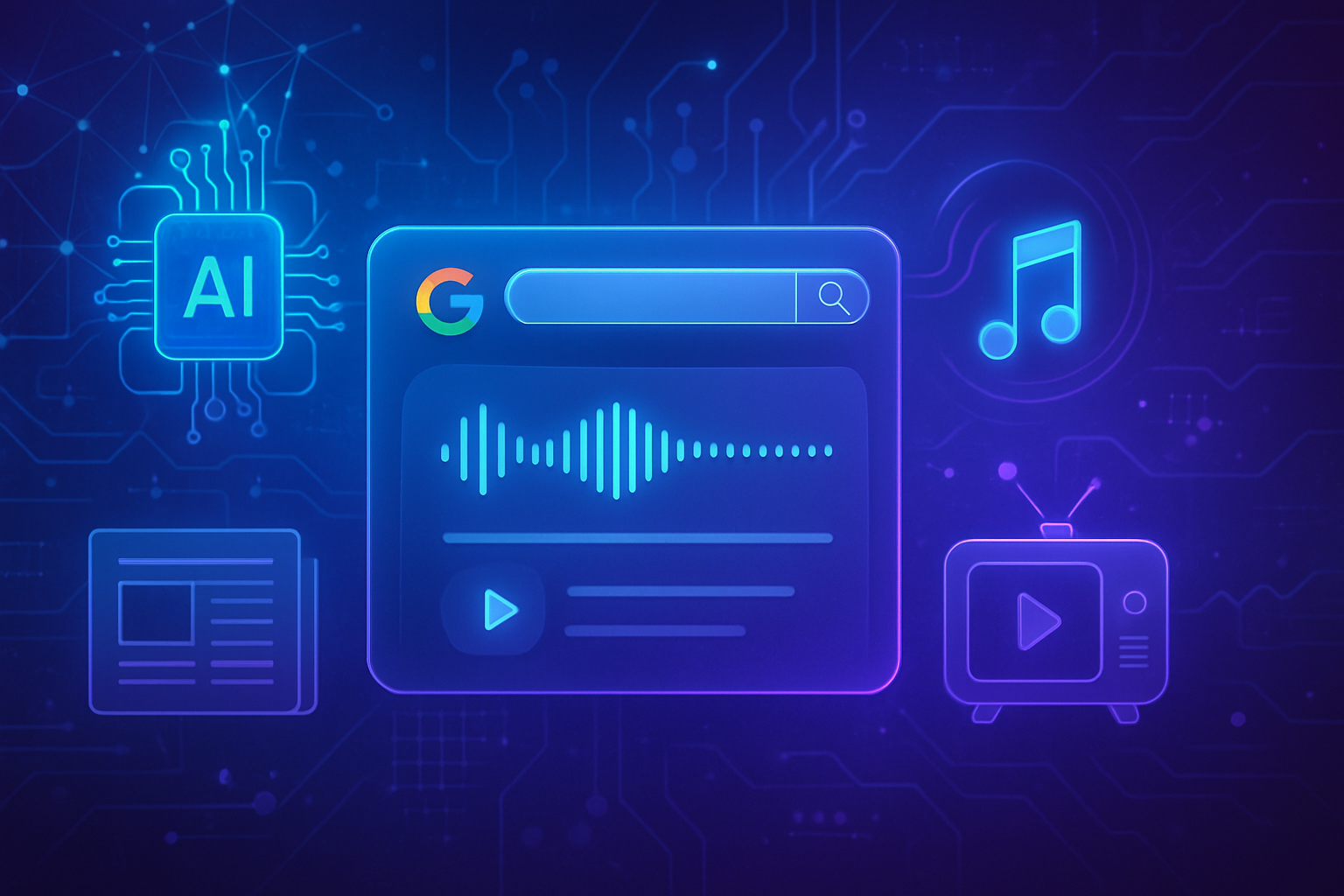The recent developments from Google, particularly the audio content generators, have concerning implications. *The innovation of “Audio Overviews”* represents a major advancement but is situated in a destabilizing context for traditional media. *A possible alarming decrease in traffic*, observed by renowned sites like the New York Times, raises questions about the future of information. The integration of AI into search may redefine the standards of information access but raises significant ethical and economic issues. The media landscape could, in a turn, be fundamentally transformed.
A bold new feature from Google
Google recently revealed its intention to integrate audio summaries into its search results, named Audio Overviews. This mechanism aims to provide users with a concise and immediate audio response, similar to a podcast. In testing within Google Labs, this innovation looks promising for users but raises concerns among content publishers.
Potential impacts on media site traffic
The concerns of publishers regarding the reduction of traffic are based on the negative impact that Google’s AI Mode could have. This feature, using artificial intelligence to generate responses, could dramatically alter user behavior. Renowned companies, such as the New York Times, are already recording an alarming 36% drop in their traffic.
Audio Overviews: a paradigm shift
This new option allows users to click on a button labeled “Generate Audio Overview” to obtain an audio summary of their searches. User preferences could evolve, favoring the instantaneity of audio responses over the consultation of written content. As a result, media outlets must reconsider their strategies to maintain reader engagement.
Links to content sources
Google strives to enhance the credibility of its Audio Overviews by indicating the sources consulted. Direct links to the original content will be integrated, promoting smooth navigation and respecting copyright. This approach seeks to ease tensions with publishers but remains insufficient in light of the scale of the challenge posed by this feature.
Issues for information access
Aiming to democratize access to information, Google promises more accessible responses, especially for novice users. With Audio Overviews, the tech giant intends to transform the way information is consumed. The company seems to anticipate increased appeal for its search engine by offering audio content that facilitates data absorption.
Diverse media reactions
Reactions within the media world range from concern to skepticism. The fear that Audio Overviews may weaken written content consumption is palpable. The potential toxicity of this reliance on audio responses could exacerbate the decline of an industry already troubled by the use of artificial intelligences.
Future perspectives
In the future, the question of the sustainability of written media arises acutely. The Audio Overviews, while offering an improved user experience, could have devastating repercussions. Media must quickly adapt to an ever-changing landscape, where the search for information evolves towards greater ease and immediacy.
To learn more about the implications of artificial intelligence in everyday life, check out this article. Insights on the impact of artificial intelligences in various fields are also available in this other link.
FAQ on Google and AI-generated audio summaries
How do Google’s AI-generated audio summaries work?
The audio summaries, called “Audio Overviews”, use artificial intelligence algorithms to condense information from a web page into an audio format, thus facilitating access to information for users.
Will this new feature reduce traffic to news sites?
Yes, several media outlets, including the New York Times, have expressed concerns about a possible drop in traffic due to this feature, which could render content accessible directly from the search without having to click on links.
How does Google choose the sources for generating audio summaries?
Google indicates that it presents the sources used to generate the audio summaries, with direct links, aiming to ensure transparency and give credit to original content.
Can users interact with these audio summaries?
Currently, users can listen to the audio summaries by clicking on a “Generate Audio Overview” button during their searches, but other interaction features are not yet confirmed.
Can content publishers object to the use of their articles to generate audio summaries?
The possibility of objection has not been clearly established by Google. However, many media outlets fear that their content could be used without explicit consent, which could pose copyright challenges.
Do audio summaries really improve the user experience?
Google argues that these audio summaries aim to provide immediate and easily digestible answers to users, which could enhance the search experience, though this remains to be seen in practice.
What should content publishers do in response to this new feature?
Publishers should consider diversifying their content strategies, focusing on formats and channels that remain outside of search results, to counter the threat posed by AI-generated audio summaries.






